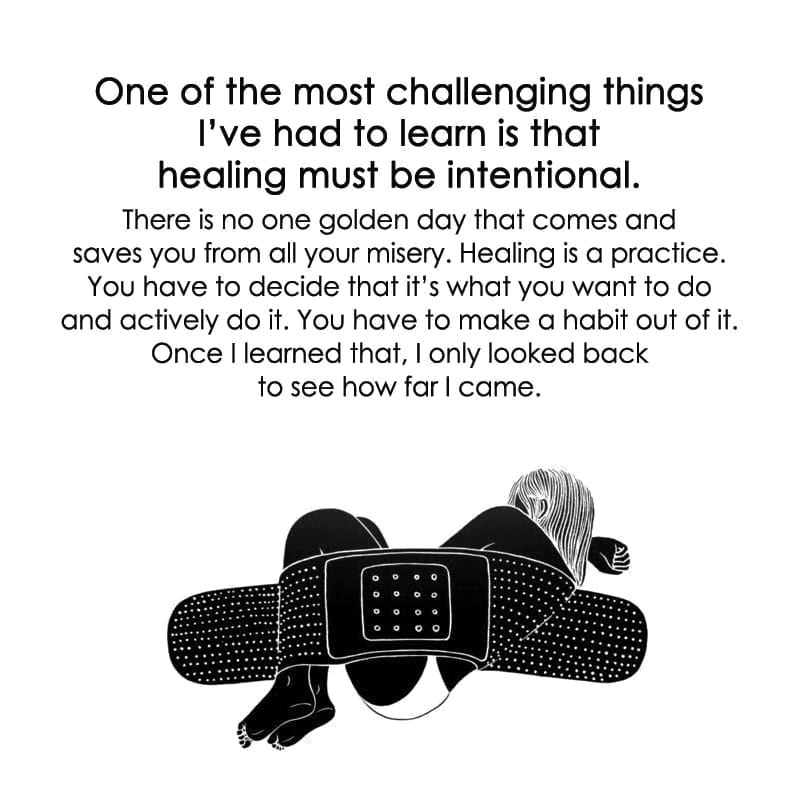While the concept of being “addicted” to chaos and stress seems absurd, the condition is far more prevalent than you would expect. Emotional addictions can occur when people grow up in environments where they were exposed to consistent stress, chaotic events and emotional abandonment. These scenarios may include different blends of an emotional or physical abandonment, abuse or stress from the primary caregiver/s or from a complex range of interpersonal relationships.
The body and mind learn and map out emotional states to use later in life.
The mind and body have what they call a “homeostatic impulse” which handles many subconscious routines that are designed to protect the human being physiologically, however, the impulse is also designed to keep us “thinking in loops” repeating or “fact-checking” the “familiar” behaviours between our past experience and present events.
In repeating these emotional states in loops and playback, many people may feel that they get “stuck” or become “powerless” to create behaviour changes from within themselves outside of their routines. In the majority of cases, these people don’t even see anything wrong or out of the ordinary in their daily routine.
By adulthood, many emotional states exist only as subconscious routines unique to each individual “default settings” which operates blindly, without conscious questioning.
The subconscious mind replays elements of the past trauma when it is in “triggered” or “activated” states, however, that “replay button” is seldom the triggering of actual trauma memories, it’s more like the triggering of unregulated emotional responses to the present life situations.
These unregulated emotional responses can sit like coiled snakes, trained, armed and ready to strike at anything that comes within range, friend or foe.
However, unregulated emotions can also seem more benign or a person’s “norm” that compels them into ongoing activity “seeking” type behaviours that could be work, health, relationships, hobbies or any activity that facilitates distraction from the internal emotional noise.
The activated high alert states can be the predominant state for many trauma survivors as these emotions operate beneath the surface in their subconscious minds. To be clear the subconscious is subconscious and that to trauma survivors nothing outside of their norm and how they are able to function day-to-day.
Unfortunately, this state can be disastrous in trying to maintain interpersonal relationships. The “perception of normality” is a hyper-elevated, hyper-activated, state of emergency, drama or panic when it does not need to be, stuck between resident unresolved emotions in present activating experiences of daily life.
The symptoms in hyperactivity may present in later life as depression, avoidant and self-defeating behaviours etc Eventually the mind or body decides it’s time for a timeout.
Emotional addictions can be complex and subtle, people subconsciously seek new “stress” or “chaos” or “activated” or “busy” or “hypervigilant” states as it matches their internal “perception of normality”. The external activity temporarily diverts attention from their underlying emotional needs which may have been on a repeat cycle of emotions since childhood.
“Stuck” means subconsciously never solving that coiled snake emotional behaviours and responses because they are constant diversion of attention goes onto new “tasks”, “ventures”, “stressors”, “events” that completely fill their immediate attention space, that should be used for healing.
It’s hard to “just snap out of it” when “it” is all you know?
These patterns and subsequent behaviours are often very covert in that we are so “used” to them as our “norm”, that in most cases they only become apparent through specialised talk therapy.
 We have to also acknowledge that in these hypervigilant states, many people are able to feel the activated emotions again and often this is what they have been inadvertently or intently avoiding over an entire lifetime.
We have to also acknowledge that in these hypervigilant states, many people are able to feel the activated emotions again and often this is what they have been inadvertently or intently avoiding over an entire lifetime.
Unresolved trauma comes with a sense of dullness, numbed or foggy emotional existence. In relationships, people may feel abandoned or have the inability to intimately connect with partners due to misunderstood emotional needs.
An unspoken yet “familiar” cycle subconscious or conscious avoidance of a resolution as it may seem “too complex and irresolvable” especially in childhood trauma.
The thinking loops create this emotional numbness and the mind needs to divert or invest its attention into other “tasks” that are seemingly far more “resolvable” and “logical” to pursue.
Many people learn about how their trauma most affects their emotional state through their relationships.
If they have learned that they can’t be seen, heard and connected emotionally or intimately, they repeat those similar patterns subconsciously through their present relationships, sometimes with dire consequences.
Each person is unique as are their responses.
The addiction to past emotional events can become a painful future of relationships. Separations, divorces and destructive breakups can cause reeling new and more present traumas that now need resolution as a new layer of trauma. Very often the new emotional damage is caused by increased toxic transactions as the relationship interplays are “tested” for validity. With trauma many people don’t feel “worthy” or deserving of unconditional love, they are not attracted to valid relationships and more often than not attract trauma-based relationships, or where trauma is present in their selected partner.
In so many situations the fear or repeat failure obstructs the formation of new potentially safe relationships.
This is nothing to be ashamed of, in the presence of past trauma these are behaviours that are completely sub-conscious. This is why emotional addictions are such misunderstood addictions that require a lot of personal work to release.
In many respects, substance addictions are simpler as there is a definite “symptom” being substance use. In emotional addictions, self-defeating cycles may not include obvious substances and may even include admiral processes like personal life goals, work success, wealth etc.
People with emotional addictions may only experience short-lived joys of their achievements before the numbing trauma cycle returns.
Until we become conscious. Until we become aware that we are not our past, our patterns, or our coping mechanisms we needed to survive.
I’ve worked with many clients stuck in this cycle. I lived this cycle for almost my entire adult life. If I felt peace, or there wasn’t some crisis in my life, I’d feel irritated. Restless. I’d pick at my partner. I’d connect with people where I could vent, complain, + re-live stress.
For months in my future self journal, I’d write “I am peace.” “Peace is safe” + I practised this emotional state over + over again. It was awkward until my mind + body adjusted.
Most of us have a distorted, trauma lens of how we experience life. And how we experience other people.
It’s what we learned. There was a time when we were children + depended on others for survival. We deeply loved these people + trusted them without question. In these relationships, love became distorted. It meant betrayal, emotional abandonment, + insecurity on various levels.
Our nervous system and brain created a task force to cope. We enter survival mode. The body is on alert. The brain works in cycles of nearly obsessive intrusive thoughts.
Everything everyone does become personal. That’s the illusion of survival mode. People do things TO us BECAUSE of us.
People can become “threats”.
The internal ego is desperate for self-worth and validation; In many respects, it tries to find it through a sense of discovering self-importance or validation from other sources. Internally we make everything about ourselves in an attempt to manage the demands of our egos. From the stranger bumping into us, to our partner who should have “just known” better, we assign internal narratives to everyone else’s behaviour in relation to us.
Very often those narratives have us as the cause of the behaviour and depending on the narrative that can be a good or bad thing.
The truth is for most of our lives we live on “autopilot” in some form or other, our subconscious minds filter out what they don’t want to see or remember things that do not impact us directly. We behave based on our past experiences and project onto people that we meet unintended “classification”. Based on how we learned to treat people, to process emotions, to cope.
This doesn’t mean we accept abuse, or become a punching bag. Boundaries are healthy and very necessary. It just means we can heal and find new ways of existing where we can pause and choose how we respond.
We can also learn one of the most powerful lessons: not everything needs a response. This is freedom from our ego knee-jerk responses that cause us so much unnecessary shame and suffering.
Online Therapy South Africa Facility
Recovery Direct is a trauma care based centre operating in Randburg, Johannesburg. The centre hosts a wide range of exclusive individualised care programmes that are tailored around each individual’s needs for personal recovery. We offer a completely confidential platform from where people are able to recover from their past trauma and learn a new life no longer governed by self-defeating routines.
We know these symptoms are often rooted in the pain of past physical or emotional trauma. We cannot change that past, but you can do the work to create a new future. When it’s not “a choice” or “fun” anymore. You just want it to end, but it won’t. Family & friends can’t understand what is really going on. You need support that understands you. It’s about getting professional help when you need it.
Stress is the mind’s way of warning us about potential danger or future harm. It stimulates us to take remedial or precautionary action and to a large degree is a normal part of everyday life. If however, you become unable to mediate or de-stress from events resulting effects can become highly disruptive to your health and wellbeing.







